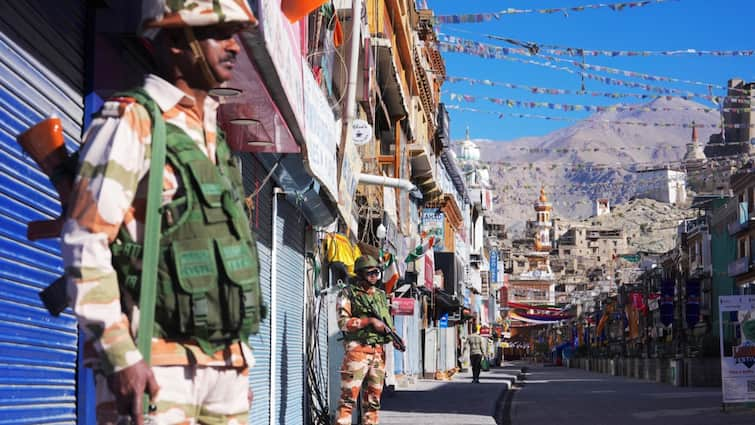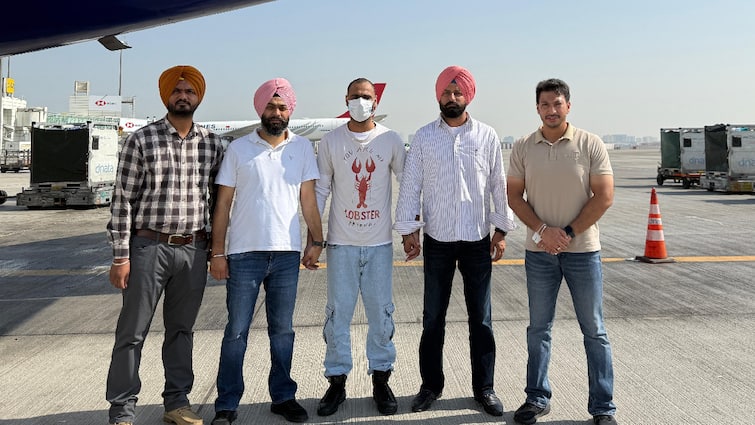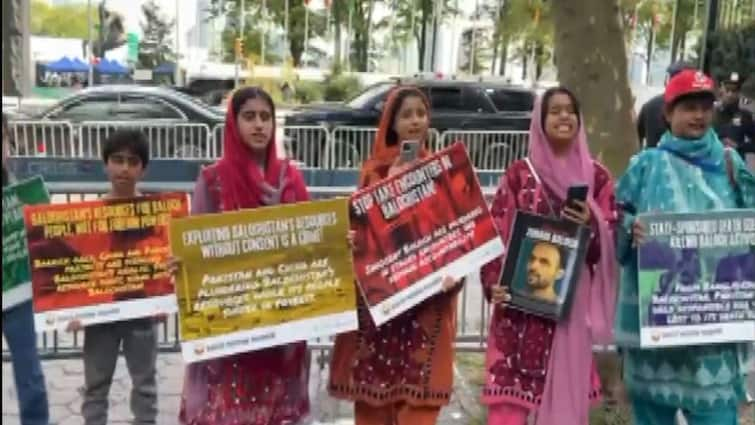Curfew continued for the fourth consecutive day in violence-hit Leh on Saturday, with heavy police and paramilitary presence across the town following the detention of renowned climate activist Sonam Wangchuk under the National Security Act (NSA).
In a late-night statement on Friday, the Ladakh administration, led by the Lieutenant Governor, said Wangchuk’s detention was necessary to restore calm in Leh and prevent further unrest. Authorities alleged that his recent speeches, which drew parallels with movements such as the Nepal ‘Gen Z’ protests and the Arab Spring, played a key role in triggering Wednesday’s violent clashes.
The violence on September 24 left four people dead, dozens injured, and saw significant damage to property. According to the administration, Wangchuk’s hunger strike and subsequent “provocative” actions escalated tensions, and that he continued his hunger strike despite clear communication from the government for the meeting of the High-Powered Committee (HPC) and the offer of prior meetings before the HPC.
“Time and again it has been observed that Wangchuk has been indulging in activities prejudicial to the security of the state and detrimental to maintenance of peace and public order,” the Directorate of Information & Public Relations (DIPR) said in its statement.
The release further alleged that his “ulterior motive” and refusal to end the hunger strike, even after talks were resumed, directly contributed to the unrest that engulfed Leh.
“The entire episode could have been avoided if he could have risen above his personal and political ambitions by calling off the hunger strike when the dialogue with the government was resumed on the same agenda,” the statement added.
Security Tightened, Curfew In Place
Officials confirmed that while no fresh violence was reported in Ladakh in the past 24 hours, curfew remains in force across Leh to maintain order. Prohibitory restrictions banning gatherings of five or more people are also in place in other towns of the Union Territory, including Kargil.
“There was no untoward incident reported from anywhere in Ladakh during the past 24 hours. The restrictions are in place to maintain law and order,” an official told news agency PTI.
Security forces have intensified patrolling and checking in sensitive zones, while raids are underway to trace those suspected of instigating violence, including a councillor accused of playing a leading role in the clashes. More than 50 people have been detained so far.
VIDEO | Leh, Ladakh: Security tightened after activist Sonam Wangchuk’s arrest.
Climate activist Sonam Wangchuk was arrested on Friday, two days after protests demanding Ladakh’s statehood and Sixth Schedule status left four people dead and 90 injured in the Union Territory.… pic.twitter.com/yuHxoSmpPz
— Press Trust of India (@PTI_News) September 27, 2025
Lieutenant Governor Kavinder Gupta is expected to chair a high-level security review meeting at Raj Bhavan. Officials said any decision regarding the relaxation of curfew will be taken after assessing the ground situation.
Wangchuk Shifted Outside Ladakh
The Leh administration stated that holding Wangchuk in Leh was not advisable due to concerns over further unrest. Acting on “specific inputs,” authorities shifted the activist to Jodhpur prison in Rajasthan after formally detaining him under the NSA.
Jodhpur, Rajasthan: After his arrest, Ladakh activist Sonam Wangchuk was lodged in Jodhpur Central Jail for the night, where security at the main gate was tightened pic.twitter.com/lWO2Gu92sv
— IANS (@ians_india) September 27, 2025
“To ensure normalcy in Leh, it is important to prevent Wangchuk from further acting in a manner prejudicial to public order,” the DIPR said, adding that his removal from the region was taken in the larger public interest as it was “not advisable to keep him in Leh district”.
Wangchuk and the Leh Apex Body started a 35-day-long fast, demanding Ladakh’s statehood and its inclusion under the Constitution’s sixth schedule. However, the violent protests have now forced the administration to impose tight restrictions on Leh, which is largely known for its peaceful environment.



